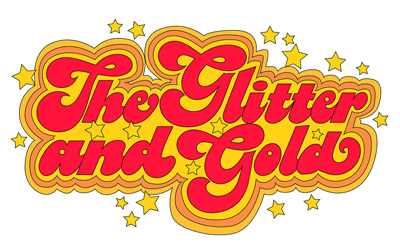With the success of ‘Like A G6’, the Far East Movement became the first Asian American act to land a Number One in the US singles chart in more than half a century. They were the second Asian act ever to top the charts. The absence of American’s fastest-growing demographic from popular music, one which makes up 5.7% of the US population, raises several important questions about Asian American media representation. A more pressing concern, however, is this. What is sizzurp? And what the bloody heck was a G6?
Who Were The Far East Movement?
Such questions will be answered in due time. But first a little about the band. The Far East Movement was founded in 2003. As a point of difference, all were Asian American. The group consisted of Korean, Japanese, Chinese, and Filipino members who had grown up in LA’s Koreatown. Their first stroke of success arrived when the 2006 single ‘Round Round’ made it onto the soundtrack of Hollywood Blockbuster The Fast and the Furious: Tokyo Drift. In 2008 another single, ‘Girls on the Dancefloor’ glanced the US singles charts.
The success of ‘Girls on the Dancefloor‘ quickly landed The Far East Movement a major label deal with Interscope Records subsidiary Cherrytree. Their big-label debut, titled ‘Like A G6’ was first released on April 13, 2010. The song featured guest appearances from Californian vocalist Dev and electronic pop duo The Cataracs. It was an instant hit.
What Does ‘Like A G6′ Mean’?
The G650 is a private luxury jet. Travelling at 650 miles per hour this sleek and luxurious machine is one of, if not the, fastest civilian aircraft ever built. Unbeknownst to Far East Movement, the G650 was still in production at the time of their song’s release. Nonetheless, The Gulfstream Aerospace Company were “thrilled” for the pre-publicity the song created.
The expression “Like a G6” is also a coy reference to a Drake lyric on 2009 Eminem single ‘Forever’. “Started off local, but thanks to all the haters,” Drake boasted, “I know G4 pilots on a first-name basis.” In terms of luxury, The Far East Movement they were trying to one-up Drake.
“Drake talks about having G4 pilots on deck,” The Far East Movement’s Kev Nish revealed in an interview with MTV News. “So we said, ‘What’s a flyer than a G4?’ Of course, it would be a G6.” The music video which followed the release of the single depicted the Far East Movement alongside The Cataracs and Dev boarding a G650.
Pop songs can often be teasingly ambiguous. Laced with a double meaning, they allow for a listener to draw from their own views, values, and life experience to fill in the blanks and create a unique meaning relevant to themselves. In the context of ‘Like A G6’, a popular interpretation is that G6 is a metaphor for feeling great about yourself.

What is Sizzurp?
The song’s most controversial lyric goes like this: “Sippin’ sizzurp in my ride, like Three 6, now I’m feelin’ so fly like a G6.” The term ‘Sizzurp’ sounds innocent enough but in truth refers not to syrup but a druggy cocktail of promethazine and codeine. Many censors did not share the hip hop community’s enthusiasm for the beverage, leading to several radio stations to edit the lyric out of the song. Kev Nish later assured Complex Magzine the group did not advocate sizzurp consumption.

Like A G6 Makes Several Hip Hop Homages
‘Like a G6′ is a collage of hip hop references. In addition to riffing off Drake, the lyric “Sippin’ sizzurp in my ride, like Three 6,” pays homage to 2000 single ‘Sippin’ on Some Syrup‘ by Memphis rap outfit Three 6 Mafia. ‘Like A G6’ also samples MC Hammer‘s 1990 chart-topper ‘U Can’t Touch This’.
Flyin’ High
‘Like a G6’ climbed to Number One in the US Billboard Charts on October 30, 2010. And there it stayed for three non-consecutive weeks. As noted earlier, this made the Far East Movement the first Asian act to top the charts since Japanese crooner Kyu Sakamoto took the Number One spot for three weeks in 1963 with ‘Sukiyaki‘. ‘Like A G6’ would also become a chart-topping hit in New Zealand and South Korea and crack the Top Ten in Australia, Canada, Belgium, the Netherlands, Thailand, the United Kingdom, Sweden, Switzerland, and Slovakia.
The Far East Movement’s immediate family were oblivious of the group’s success. They would only later become aware through publicity the band received on radio and TV. “A lot of our parents didn’t believe it was a real career path,” Dev would later share. “‘I’m going to be a rapper.’ You can’t do that to Asian parents. It’s like, ‘No, absolutely not.'”

What Came After ‘Like A G6′
After a well-performing follow-up single, ‘Rocketeer’ followed ‘Like A G6’, Far East Movement’s success quickly fell away. Despite a guest appearance from Justin Beiber on lead single ‘Live My Life’, their 2012 album Dirty Bass failed to make a significant impact. The group later released several singles. At the time of writing, the most recent of these was 2020’s ‘We Are the Truth’.
Far East Movement and The Asian Century
Think back to 2010. ‘Gangnam Style‘ was more than a year away and blockbuster Crazy Rich Asians had yet to be pitched to Holywood film executives. K-pop acts like BTS and Blackpink were mere blips on the horizon. Far East Movement was a sign of things to come.
‘Like A G6’ was a prophetic rumble of the Asian Century (the projected 21st-century dominance of Asian politics and culture). For a new generation of teens, just to see somebody like them on an album cover or in a music video was no doubt a profound experience. Far East Movement may not have broken pop archetypes but they opened a doorway to the possibility for many who would not have thought it possible.

On The Shortness of Fame
“Glory is an empty and fleeting thing,” the philosopher Seneca once wrote, “lighter than air.” It is hard to say too much about ‘Like A G6’ or the Far East Movement for that matter. Looking back at the song at a time when popular music is so heavily driven by celebrity and social media influence, the Far East Movement come across as strikingly anonymous.
The rapidity with which we forget is astonishing. In 2010 ‘Like A G6’ thrust itself to the forefront of pop culture. Far East Movement held the public’s attention for a moment then, no sooner than they had appeared, they were yesterday’s news. One minute your single is the most listened-to new song in the world, the next it all disappears in a puff of smoke. The Far East Movement came and went with the speed of a Gulfstream jet.
Their success was hardly a domino effect. It did not lead to a succession of other Asian American artists to top the charts. (It would be nearly a decade before Asian acts became a regular and visible presence in pop.) Nevertheless, there has yet to have been another Asian American to rival their achievements. The door remains open for another ambitious act to top them. Hopefully, it won’t take another 47 years.

‘Like A G6’ Peak Chart Positions
US/Billboard 100: #1
Australia/ARIA: #2
UK/Official Charts: #5










Asian American representation